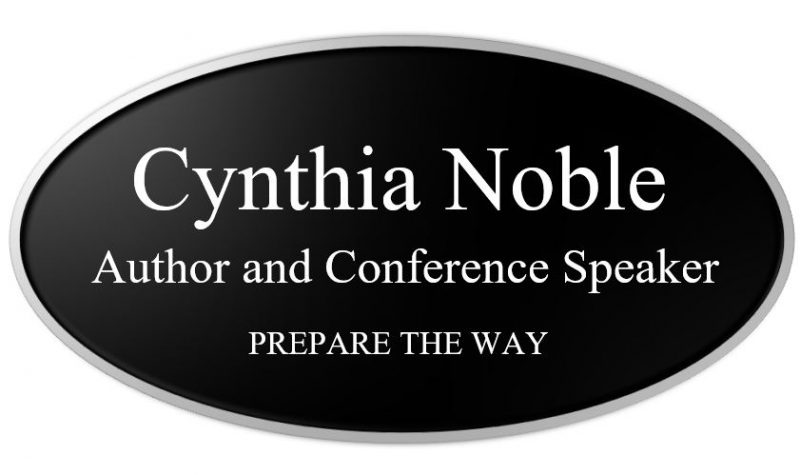
We all spend a lot of time and energy praying for all kinds of things – and some of those prayers are urgent, desperate prayers. But what if we’re sabotaging our own prayers? What if we’re doing something, even unconsciously, to negate them? Would we want to know that? Why wouldn’t we?
In my last post, “Ten Ways to Blow Up Your Destiny,” I introduced three things that will shipwreck our prayers. Today, I want to discuss the rest of the principles that we should know in order to not sideline our prayers.
Thing #1: Put God first. In other words, we cannot and should not put our dreams, visions or destinies before God. Jesus tells His followers, ‘”Your heavenly Father already knows all of your needs . . . Seek first his kingdom and righteousness, and all of these things will be given to you as well . . .’” (Matt. 6:33). Our “needs” are not just categorized as physical needs; we need all kinds of intervention for all kinds of things. No matter – same principle applies: the big “if-then” – if we put God first, then we get whatever we might need. Period.
Thing #2: Unconfessed sin. David proved that after he sinned with Bathsheba, lied about it, and then killed her husband, Uriah, to cover it up. Now, if anyone should have their prayers tuned out by God, it would be someone who’d done all of those things. But David repented of his sin (with a little persuasion from the prophet, Nathan). David pleaded to God: “’Don’t keep looking at my sin. Remove the stain of my guilt. Create in me a clean heart, O God, Renew a right spirit in me . . .’” (LB, Ps. 51:9-10). After David confessed his sin, God was able to interact with him again. Remember, Habakkuk says to God, “’Your eyes are too pure [even] to look on evil; you cannot tolerate sin’” (1:13). “Tolerate” is a little mild for the translation. The KJ version says, “’You cannot [even] look on sin’”. And the word “cannot” in all translations means “cannot”. It doesn’t mean “might not” or “can-if-He-wants-to-but-just-doesn’t-want-to”. God is not able even to look at sin, much less have fellowship with someone in it (thus the reason Christ died – but that’s another post entirely). So – unconfessed sin = unanswered prayers.
Thing #3: Wrong response to authority. We see this principle in Paul’s warning to children to submit to and obey their parents and they’ll be blessed. Why? Because their parents are the authority over children. If they will submit to authority, then they will be blessed. But that warning about authority applies to all of us, not simply children.
And why does God feel so strongly about submission that He ties conditions to responses to authority? Because societies fall apart when people begin to reject authorities.
(Watched the news lately?) So God has built into His principles the condition that if we submit to authority, then we will be blessed. And aren’t all answered prayers considered blessings? I know mine are.
Thing #4: Pride. This is another no-no if we’d like our prayers answered. We all know pride is bad – no surprise there. For example, take Naaman who came to the prophet Elisha to petition (pray) for healing from leprosy. When Elisha told Naaman to go and dip in the Jordan River some times, Naaman thought that was ridiculous and refused. His pride got in the way. Consequently, he didn’t have his prayer for healing answered until he decided to humble himself and take a dip. Then his prayer was answered. “God opposes the proud, but gives grace to the humble” (I Peter 5:5-6).
Thing #5: “Evil speech.” Our words can be another problem if you’d like your prayers answered. Gossip, slander, accusation, arguing, lying, complaining – all of these can hinder prayers. Now, thank God for his mercy because who hasn’t, at the very least, complained? But for those who continue in these things without repentance, their prayers won’t accomplish much. Isaiah warns, “’If you do away with the pointing finger [accusation] and malicious talk . . . then your light will rise in the darkness and your night will become like the noonday [revelation]. The Lord will guide you always [direction]; He will satisfy your needs in a sun-scorched land [provision] and will strengthen your frame [healing] . . .’” (58:9-11, interpretations mine). Peter says, “’If you want a happy life and good days, keep your tongue from speaking evil and keep your lips from telling lies’” (3:9).
Thing #6: Have faith in God, not in faith. It’s not up to us to manufacture our faith and moreover, “having faith” is not about how much faith we have, it’s about whether or not we trust God. Why is this important? Two reasons: first, sometimes we treat faith like heaven’s money; if we just get enough of it, we can cash it in for whatever we want. Doesn’t work that way. Second, the essence of faith is the question: “Do I trust God – whether or not He answers my prayers the way I want Him to?” That’s vastly different than “Okay, God, here’s how much faith I have so here’s how I want You to answer my prayer.” Faith is not cash, and God is not a vending machine. If we think so, I think I can predict that our prayers won’t be very effective.
There are other principles for praying effectively that, if disregarded, can affect our prayers. But lest we become overwhelmed with all of the ways we can shipwreck our prayers, let’s simply remember to begin our prayers with a sincere, “Lord, I’m sorry for…”
It’s amazing how that one little prayer will open up a whole conversation with God.


No Comments
Sorry, the comment form is closed at this time.